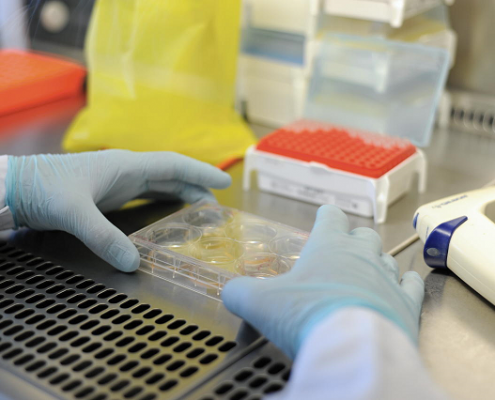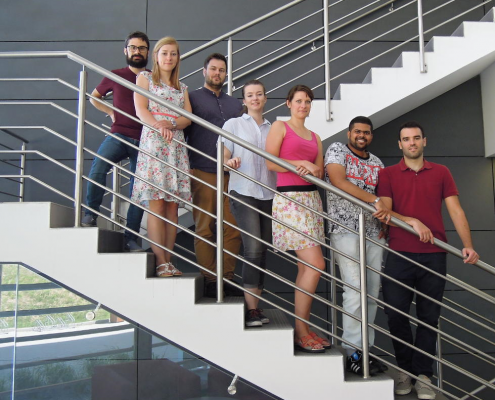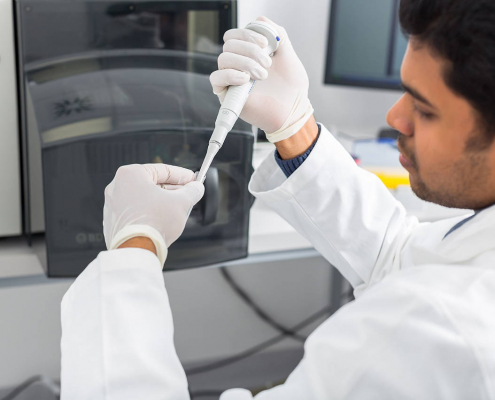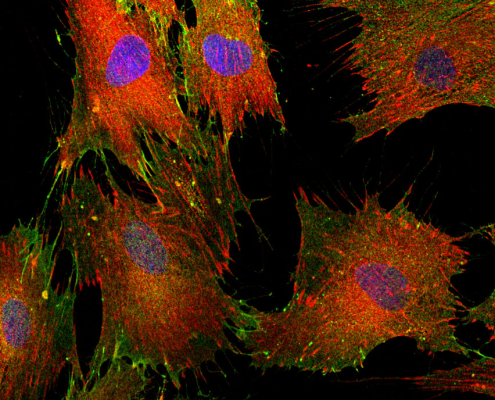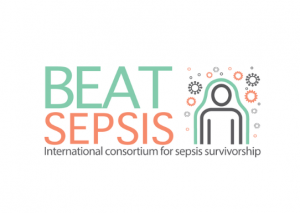CELLULAR AND MOLECULAR
IMMUNOREGULATION
Revealing the secrets of immunity.
Key words
Innate Immunity, Inflammation, Immunosenescence, Immunosuppression, Sepsis, Tissue Organoids.
The Cellular and molecular immunoregulation team coordinates BEATsep project.
BEATsep represents an interdisciplinary approach, bringing together research teams addressing specific aspects of long-lasting consequences of sepsis and PICS development and clinicians specializing in the care of sepsis patients and clinicians involved in treating and preventing long-lasting results and PICS. Given the anticipated large volumes of data, we will leverage artificial intelligence (AI) algorithms to integrate our complex clinical and research data and create a readily applicable predictive tool capable of identifying sepsis patients at the highest risk of reduced quality of life.
Research focus
- The group focuses on different aspects of the human immune response and on how the underlying mechanisms of immunity are linked with the development of disorders and pathologies. The main objectives are addressing i) the role of the immune response in the progression of sepsis and septic shock, including the study of long-term consequences; (ii) studying the aging of the immune system and characterizing the immunosenescent phenotype in a number of cohorts of patients, including oncological diseases survivors or in patients with neurodegenerative diseases or chronic cardiovascular problems; (iii) 3D models of human mucosal tissues enabling the study of the immune response in the microenvironment; (iv) immune cell signaling, in particular the role of the calcineurin-NFAT pathway in the development of susceptibility to infections; (v) immunometabolism as a controlling mechanism of the immune response. Our thigh collaboration with clinicians creates the opportunity to perform basic research with a strong translational approach from the bench to the bedside approach.
- Main partners of the CMI group: Department of Pathophysiology, Third Faculty of Medicine, Charles University in Prague, Czech Republic; Veterinary Research Institute, Brno; Institute of Hematology and Blood Transfusion in Prague; Czech Centre for Phenogenomics, Institute of Molecular Genetics, Prague; Central European Institute of Technology, Brno; University of Perugia, Italy; Latvian Institute of Organic Synthesis, Riga
Main goals
- Description of the role of TLR receptors in acute immune response, chronic inflammation, and tissue regeneration using immune cells and mucosal tissue 3D organoids.
- Characterization of dynamic changes of the immune system during onset and progression of septic shock. Long-term changes in the immune system caused by septic shock.
- Describe molecular crosstalk between innate immune signalling and metabolic changes in myeloid cells.
- Describe the mechanisms responsible for the onset of innate immune memory as a tool to reduce the susceptibility of patients to respiratory infections.
- Develop translational research in the field of immunosenescence and inflammaging through analysis of various cohorts of elderly, patients with chronic inflammatory disorders, and children cancer survivors.
- The mechanism controlling the activation of the immune system in chronic inflammation (e.g. Crohn’s disease)
Technological equipment
- Flow Cytometry Facility – mastering the complexity of cell analysis and isolation (MoFlo Astrios, Spectral cytometry SONY SA3800)
- Magnetic Cell Separator (AutoMACS, Miltenyi) – automatic and fast high purity enrichment of cell subsets
- Multiphoton Microscope – analysis of full thickness tissues explants and 3D cultures
- Confocal Laser Scanning Microscope suited for live imaging

